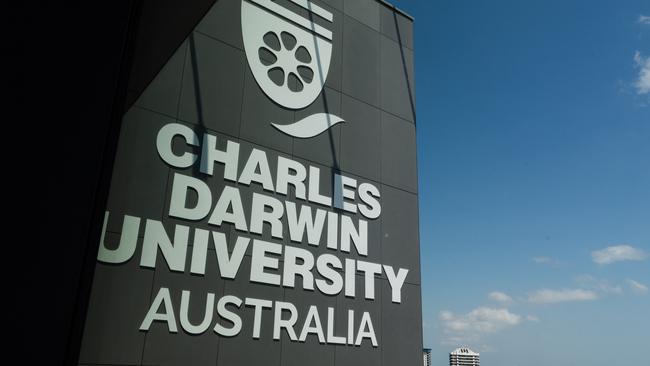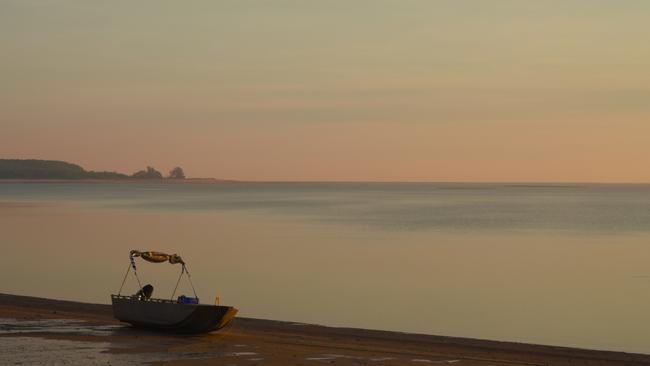A new research paper by Charles Darwin University reveals why the journey can be just as important as the destination
A days’ long canoe trip along the coast of Arnhem Land can now be completed within hours in a tinnie, but accelerating movement can also have implications for Indigenous peoples’ relationship with ancestral country, according to a new research paper. Find out why.

News
Don't miss out on the headlines from News. Followed categories will be added to My News.
A days’ long canoe trip along the coast of Arnhem Land can now be completed within hours in a tinnie, but accelerating movement can also have implications for Indigenous peoples’ relationship with ancestral country, according to a new research paper.
A new research paper by Sam Williams, a PhD candidate from Charles Darwin University’s Northern Institute, focusing on the impact of technological advancements on maritime transport, has been published in the journal of Maritime Studies.
Mr Williams’ paper examines historic and contemporary journeys between the Territory towns of Warruwi and Maningrida in north central Arnhem Land, a voyage of more than 250km.

Mr Williams collaborated with Elders and traditional owners Samuel, Henry, Jack and their families from Maningrida to understand how the transition from travelling in dugout canoes to motorboats had changed Indigenous peoples’ relationship with Country.
The research is part of a larger project commissioned by Elders to renew the relationship between people and the land.
The last canoe to travel between Maningrida and Warruwi set sail in 1982, with the transition to motorised tinnies bringing changes to people-place relations.
Reduced travel time has reduced the need to camp, and the accessibility of tinnies means Elders and their children or grandchildren travel together less.
During fieldwork conducted between 2023 and 2024, Samuel recounted travelling as a child by dugout canoe listening to and watching his Elders as they interacted with the land and sea.
“When we were travelling with the canoe, we used to stop and camp. My mother, she used to tell us, ‘Come on you boys, make a big fire and I’ll tell you all these sacred site areas’,” he said.
The group has been making a series of video resources to familiarise younger generations of their families in Maningrida with important ancestral places.
Mr Williams said the research was important to restore the relationship between the land and people.
“This acceleration has not facilitated the kinds of encounter between people and their Country that my collaborators in Maningrida are deeply concerned about”, he said.
“Moving faster can unsettle the possibilities for interaction that involves sitting near, listening, observing and engaging.”
More Coverage
Originally published as A new research paper by Charles Darwin University reveals why the journey can be just as important as the destination




